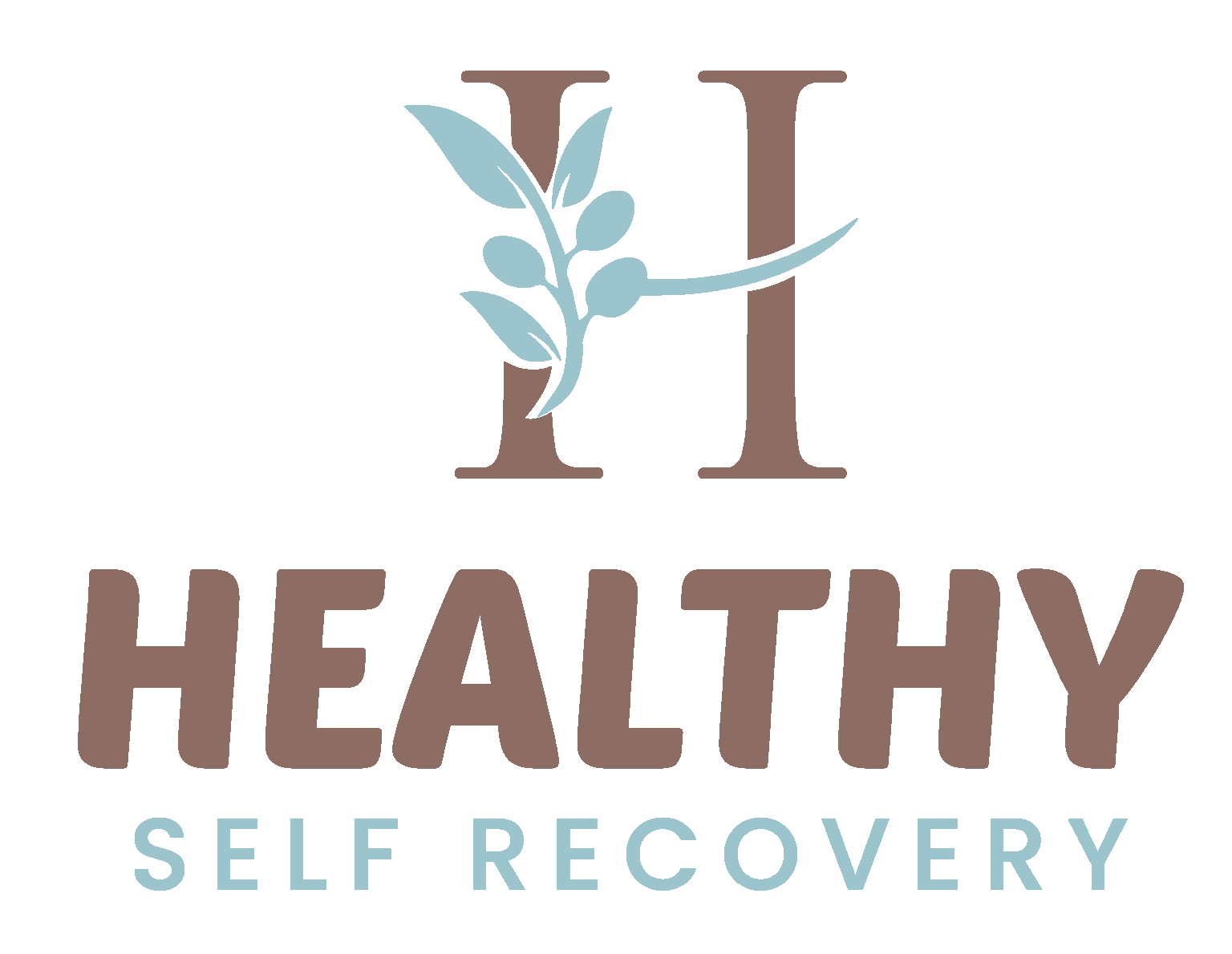Recovery from an eating disorder is a complex journey that requires a multifaceted approach. While therapy and medical intervention are often vital components, eating disorder recovery coaching is emerging as a supportive approach for individuals seeking to have a healthier relationship with food, exercise and with themselves. This blog will explore the relationship between eating disorder recovery coaching, positive nutrition, the development of healthy habits, and show how coaches can facilitate lasting change.

The Role of Eating Disorder Recovery Coaching
Eating disorder recovery coaching complements traditional treatment by providing personalized support that fits each person’s unique needs. Coaches are trained to understand the ins and outs of eating disorders. They use a variety of techniques to support and empower clients in their recovery journey. Here’s how they contribute to building a balanced, healthy relationship with food and beyond.
1. Education and Awareness
Awareness is the first step to action. Having the right knowledge is a crucial component of recovery. Because eating disorders are so often accompanied by black and white thinking, those who suffer from them often become fixated on particular diet culture fads or highly selective aspects of nutritional information, seeing food and nutrition in absolutes. This is often the source of their food rules and some of their eating disorder behaviours. This could look like the avoidance of all carbohydrates due to the belief that they are “bad”. Or the belief that sugar in any form is fattening, or that fat should be avoided at all costs.
As a qualified nutritionist, one of the main responsibilities as a recovery coach is to (re) educate clients on evidence-based nutrition. This will allow them to develop a balanced and flexible approach to food and to understand its appropriate role in their well-being. Often, this starts with understanding what a calorie is and how many calories the body actually needs. This can be a good place to start understanding how inaccurate and unhelpful calorie counting can be. Learning to trust that the body can regulate its own energy intake through hunger and fullness cues and does not need to be controlled and restricted is a big part of overcoming disordered eating.
Learning and Trusting Food Exsists on a Spectrum
An essential part of recovery is learning and trusting that food exists on a spectrum rather than in absolutes. A spectrum means that at times you eat more, at others you eat some, and sometimes you eat less. A spectrum like this allows everything to be contextualized or made personal, and it is recognized that everyone’s relationship with food is different. Additionally, a lot of time is spent addressing and dispelling many diet culture misconceptions that exacerbate and trigger eating disorder behaviours.
By fostering a proper understanding of nutrition, clients can learn to appreciate food beyond the constraints of their eating disorders and start to realise that food is not only sustenance but also a means of connection, culture, love and much more.
2. A Bespoke Approach
Everyone’s recovery journey is unique, and what works for one person may not be suitable for another. Recovery coaches work collaboratively with clients and their registered dietitians to create and follow a personalized nutritional framework that considers nutritional needs and rehabilitation, circumstances, and personal preferences. The aim is always to help and support people to steer away from rigid food rules, restrictions, or chaotic eating and to lean toward creating a balanced and flexible approach to eating.
In my personal coaching practice, I use and follow the RAVES model, created by Australian dietitian Shane Jeffrey. RAVES is an evidence-based framework specifically designed for people suffering with an eating disorder to develop a healthy relationship with food and to move toward intuitive eating. Raves is a flexible model that is meant to be adapted to the individual and their stage of recovery, making it bespoke to them and their circumstances.
Stages of RAVES
The stages that help to support a balanced approach to nutrition are as follows:
R- Regularity
This stage is about establishing a consistent eating schedule. This may look like ensuring 3 regular meals and 2 -3 snack times are coming in, and identifying barriers to consistent eating. Regularity is crucial to improving digestion, stabilising blood sugar levels and reducing binge eating.
A- Adequacy
Assessing nutritional needs and deficiencies and ensuring that clients are eating sufficient to restore a healthy weight and do the repair work that is necessary when recovering from an eating disorder. Very often at the beginning of recovery, nutritional needs are much higher than normal as the body needs to nutritionally rehabilitate and repair. Initially, this may be allowing the client to stick to safer foods in order that sufficient energy is coming in, but ensuring that all food groups and macro as well as micronutrient needs are being met.
V- Variety
It’s very common in eating disorders to have a small list of safe foods and a much larger list of fear foods that are avoided. Incorporating a variety of foods and learning that all foods fit within a balanced diet is a key part of recovery. This may also include challenging distorted thoughts and beliefs about certain foods and labelling foods as good and bad. This stage is very much about learning to trust that all foods can fit and learning to eat them without fear. Coaches are there to encourage and model, and to actively help build a more positive relationship with eating, which incorporates a variety of foods. They may do this by having weekly food goals or collaboratively deciding on food challenges. This phase may also include reducing and challenging compensatory behaviours that erode adequacy and variety
E- Eating Socially
Eating disorders thrive in secrecy and one thing that often falls by the wayside is being able to eat without anxiety, guilt or compensation in a social setting while being fully present. Socially eating is a pivotal part of recovery and coaches will support and encourage this through a number of ways – primarily helping to build the confidence in being able to tolerate a variety of foods in different settings and trusting others to prepare food for you. Eating socially is key to re-establishing human connection as being more important than the eating disorder part, and being able to engage with people whilst not being distracted by the eating disorder thoughts and voice. Coaches will provide exercises to ground and distract clients and ease the anxiety of eating socially until it becomes a thing of ease again.
S- Spontaneity
This is really the end goal of working with a recovery coach. Being able to eat spontaneously, flexibly, learning to trust the body’s signals, and without overthinking food choices.

3. Mindfulness Practices
Mindfulness in its different forms is a powerful tool in eating disorder recovery. Having an eating disorder often entails overriding physical and emotional cues in favour of complying with the eating disorder. Coaches will very often incorporate mindfulness techniques into their practice as a way of helping clients to reconnect not only with their bodily cues related to hunger and fullness but also deeper awareness of their thoughts, feelings, anxiety levels and more.
Depending on the client and the situation, coaches may use a variety of techniques such as breathing exercises, journalling, meditation, visualisation and grounding exercises to help clients not get hooked by eating disorder thoughts and to reduce the anxiety surrounding food. For certain eating disorders such as Bulimia or BED, coaches may also encourage mindful eating, which is where the client pays very specific attention to the sensory experience of eating, so that they can learn to recognise when they are genuinely hungry or full.
4. Emotional Support and Accountability
Eating disorder recovery can be an emotionally taxing journey. Recovery coaches provide a safe space for clients to express their feelings and fears. Working with a recovered coach such as myself is of particular benefit as it means that having walked a similar path and had similar thoughts and feelings. I truly understand the challenges involved in recovery and this often means that there is a deeper level of trust and rapport as a recovered coach. There’s never any judgement surrounding eating disorder thoughts or emotions.
Moreover, the regular, daily accountability provided by coaches can be a significant motivator for clients as well as being the key to helping them overcome difficult moments. Regular check-ins ensure that clients are not left on their own in difficult times, as they have someone who they know they can turn to, who has the training and personal experience to help and understand. This support helps clients stay on track with their recovery goals, whether these are nutrition or behaviour-based, and can be vital in avoiding relapse and maintaining momentum throughout recovery.
In addition to the support and accountability, eating disorder recovery coaches are there to model a more positive relationship with eating and to be an example of recovered living. Many times they may be the only person that the client knows who has recovered from an eating disorder.
5. Building Healthy Habits
Developing healthy eating habits is essential for long-term sustainable recovery. Recovery coaches guide clients in establishing routines that promote a balanced approach, not just to food and nutrition but also to exercise and general well-being.
This may include:
- Meal Planning. Encouraging clients to plan meals ahead of time, allowing for spontaneity and variety throughout the week. This helps with gaining a sense of agency over eating habits.
- Cooking Skills. Teaching cooking techniques or helping find balanced recipes that clients can try. This empowers clients to feel less anxious, more comfortable and confident in the kitchen, an important skill for not re-engaging in eating disorder behaviours.
- Grocery Shopping. Offering guidance on how to shop for foods, and make a variety of choices while navigating grocery aisles independently.
By practicing and developing these practical skills with their recovery coach, clients gain a sense of self-mastery and competence, which is often lacking during the throes of an eating disorder, and is so for establishing balanced, healthy habits, essential for maintaining long-term recovery
6. Fostering Self-Compassion
Fostering Self compassion is an integral part in healing from an eating disorder as it reduces guilt and shame which are such crippling emotions. Self-compassion, a philosophy developed by Kristin Neff, is based upon 3 principles. These include common humanity, self-kindness, and mindfulness. The concept of common humanity recognises that we are part of a bigger whole and suffering is a universal human condition, not an individual failing. Self kindness encourages being generous and decent to yourself in contrast to the harsh inner critic which is so common with eating disorders. Mindfulness involves being non-judgmental and consciously aware of what you are doing, thinking, feeling, and experiencing.
People who suffer from eating disorders so often hold themselves to unreasonably high standards, believing that their personal needs and experiences are different from others: for example, needing to work harder, eat less, exercise more than others. These limiting beliefs fuel an intensely critical inner voice that can be crippling. Coaches will work with clients to first cultivate an awareness of this inner critic and then to help them realise that self criticism is not the motivator they think it is. Coaches guide clients to replace self criticism with self accountability and self compassion. By learning to approach themselves with kindness, understanding and a sense of common humanity, this teaches clients to hold themselves accountable without that harsh inner voice and to extend the same kindness to themselves that they would to a friend.
7. Exploring Your Relationship With Exercise
Exercise can play a complex and nuanced role in the recovery process for those overcoming an eating disorder. While regular physical activity is generally promoted as beneficial for overall health and well-being, for people struggling with disordered eating, their relationship with exercise has often become compulsive and unhealthy. Rigid exercise regimens may have been used as a way to purge calories, compensate for eating, or pursue an unrealistic body ideal. Patterns that can be difficult to unlearn, especially when society at large praises exercise.. As such, re-examining one’s relationship to exercise and movement is a crucial aspect of eating disorder recovery.
This process often involves taking a break from exercise to trust that one’s body can cope without it, learning to detach exercise from weight and shape goals, becoming attuned to the body’s cues rather than external compulsions, and focusing on how movement feels rather than on calorie burn or manipulating body shape. Ultimately, the goal is to reframe the role of exercise as an enjoyable. Energizing and restorative habit, rather than a punishing or compensatory tool. With help from a recovery coach it is possible to gradually untangle the disordered thought patterns around exercise. Thus, cultivating a more peaceful, positive connection with movement.
The Vital Role of an Eating Disorder Recovery Coach in Lasting Healing
Eating disorder recovery coaches play a critical role helping individuals cultivate positive nutrition and healthy habits that support lasting recovery. Throughout this transformative journey, an eating disorder recovery coach serves as an irreplaceable source of guidance, emotional support, encouragement and motivation. If you or a loved one is suffering, know that full recovery is possible with help. Reach out here for support from Healthy Self-Recovery.

Start Your Journey to Food Freedom With Eating Disorder Recovery Coaching in The UK and Online Globally
Healing your relationship with food is possible with the right support. Eating disorder recovery coaching can help you break free from harmful patterns. Thus, building a healthier, more balanced approach to eating. Healthy Self Recovery is here to guide you—reach out today to take the first step toward lasting change. Follow these three simple steps to get started:
- Contact me to schedule a free discovery call to see if Eating Disorder Recovery Coaching is right for you.
- Begin meeting with me, Marianna Miles, an British eating disorder recovery coach
- Start creating a positive relationship with food!
Other Services Offered at Healthy Self-Recovery
As your eating disorder recovery coach, I’m here to support you every step of the way. Offering guidance and encouragement as you work toward lasting change. My eating disorder recovery coaching sessions are personalized to help you navigate the emotional and behavioral aspects of recovery. With ongoing text support to keep you motivated. I provide compassionate meal support, creating a safe and understanding environment to help you overcome food-related anxieties and build healthier habits. Working alongside your medical team, I ensure your recovery plan aligns with your overall treatment goals for a comprehensive approach. Together, we’ll create a path to healing that empowers you to regain control and live beyond your eating disorder. My services are available across the UK, including England, Scotland, and Ireland. I also offer online coaching worldwide, so you can access support no matter where you are.








